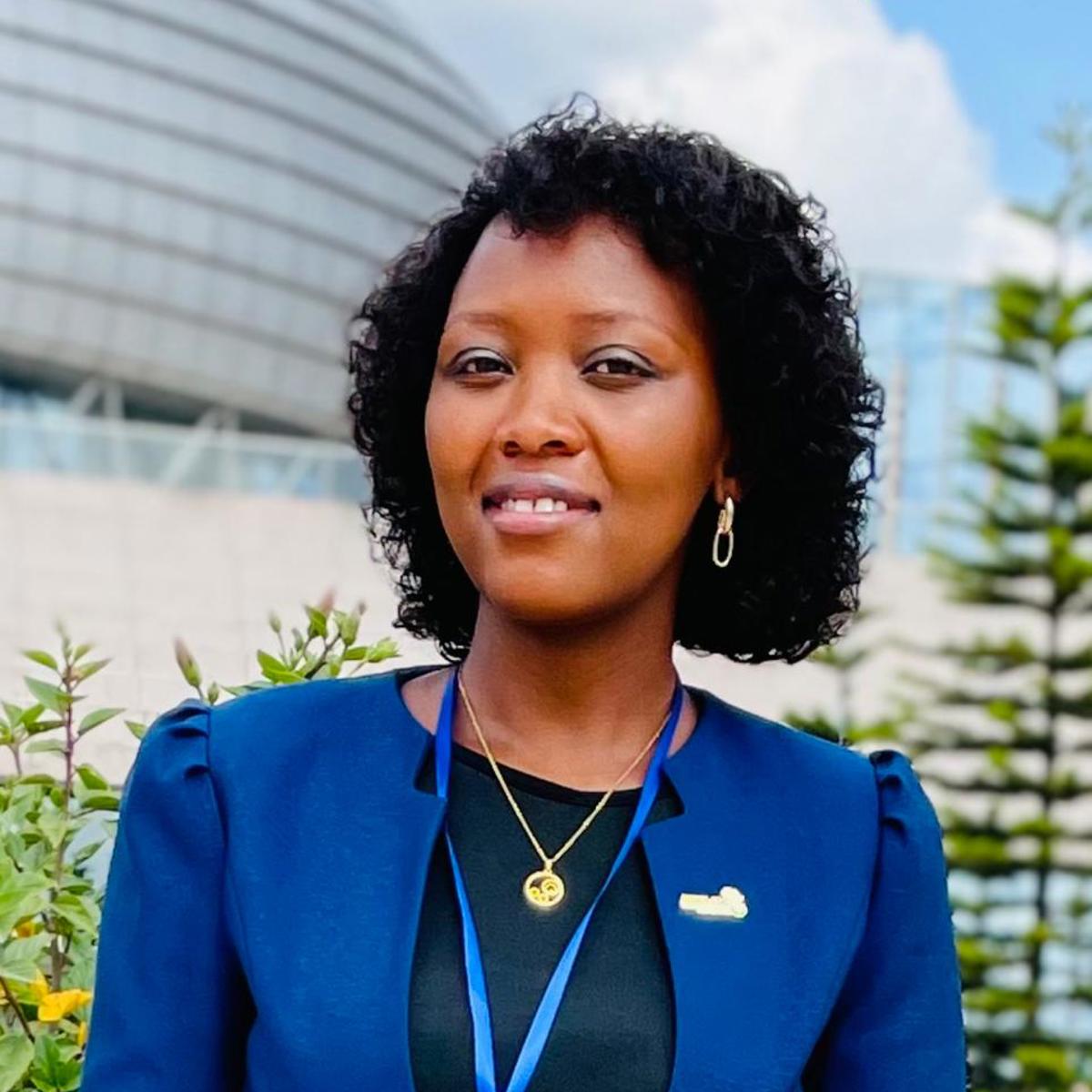Betty Kabarega


Betty Kabarega Ingabire
Noncommunicable diseases (NCDs) - such as cardiovascular disease, cancer, and diabetes - kill 41 million people each year, equivalent to 71% of all deaths globally (World Health Organisation). This has not gone unnoticed by the likes of Betty Kabarega, a Queen Elizabeth Commonwealth Scholarship (QECS) alumna turned Technical Officer at the Africa Centres for Disease Control (CDC) and Prevention in Ethiopia.
‘NCDs continue to be the leading cause of morbidity and mortality, placing a significant burden on health care systems worldwide. A lot of time and resources have been invested into communicable diseases while inadvertently neglecting NCDs in the process. With globalisation it’s becoming evident that we need to shift more attention towards noncommunicable diseases’ Betty explains.
The Africa CDC is a specialised technical agency of the African Union whose mandate is to strengthen the capacity and capability of Africa’s public health institutions to quickly and effectively detect and respond to disease threats and outbreaks based on data driven interventions and programmes. As a technical officer specialising in non-communicable diseases, Betty supports Member States across Africa by strengthening their capacity to prevent and control non-communicable diseases. This includes providing strategic guidance and support, workforce development, strengthening NCDs surveillance, health promotion and protection policies development. She is currently working on the first ever five-year continental strategy for NCDs and injuries prevention and control and mental health promotion, which will act as a high-level document and source of guidance with practical interventions and responses to address the current burden of NCDs, injuries and mental health problems across the African continent.
‘If a Member State wants to implement an initiative in the area of NCDs prevention and control such as a national strategy, they can reach out to us to request support. At Africa CDC, partnerships are at the centre of our day-to day work, we believe in respected action-oriented partnerships as reflected in the new public health order for Africa. We work with international and local partners to ensure coordinated efforts and efficiency', Betty recalls.
Thinking global, acting local
Studying a Master of Public Health (MPH) at the University of Mauritius (UoM) built a solid foundation for Betty’s career in non-communicable diseases. In fact, it was at UoM that Betty conducted a clinical trial on the consumption of Moringa Oleifera Lam infusion - an indigenous plant used in herbal teas – and its relationship to biomedical markers of health that relates to NCDs (eg. Blood glucose, Hyperlipidaemia, BP, etc. . Nearly 20% of the population above the age of 30 and nearly one in two of those above 50 suffer from diabetes in Mauritius (World Diabetes Foundation). Not only did this experience contribute to her knowledge but it also provided an opportunity to collaborate with her supervisor on a local problem which cut across the continent.
I wanted to apply my passion for understanding non-communicable diseases to provide evidence for solving a local problem in the country I was studying in. I saw a local challenge in Mauritius, and I wanted to help.’

Betty sees her scholarship as a defining moment for her academic progress and skills development. ‘My sincere gratitude goes to the QECS for giving me an opportunity to enhance my studies and acquire international exposure which has been key to achieving my long-term career dreams. It has been my dream to build strong expertise in public health and specifically in non-communicable diseases prevention and control. My master’s degree and previous experience was a huge contribution to getting this job’, Betty recalls.
Championing global health equity
Betty is a strong advocate for health equity and enhancing access to care. She saw the impact of non-communicable diseases first-hand while growing up and working at a hospital in her home country, Rwanda.
‘In my community, I used to see children with malnutrition related diseases. I would think to myself, why do we have kids and children who are malnourished when I see food everywhere? And hence I joined the ‘Human nutrition and dietetics' course in college, out of this curiosity and desire for positive change. During my time at college, as an intern at a local hospital, I realised that malnutrition effects do not end with those malnourished children I used to see. I even started seeing old people admitted and some of them dying of malnutrition related diseases including NCDs', Betty recalls. ‘You would see people with cancer, cardiovascular disease and diabetes struggle to even manage to comply with their medications or access medical care and support’.
This experience shaped Betty’s desire to strengthen the capacity of governments to effectively prevent such diseases and advance health equity. Pursuing higher education was an essential step to achieve this. ‘I realised that I needed at least a masters to become an expert in this area and effectively influence these things mostly at the policy level, because my dream is to see and live in a world where everyone can access health care, irrespective of who they are, where they live and what resources they have in their community. In fact, a world in which health is a human right’, Betty explains.
Betty’s scholarship contributed to an important mental shift in her career aspirations and goals.
My plans and ambitions used to be at my country and community level because that's all I had experienced before, but my master's degree really opened my eyes. To make a difference in controlling NCDs, you need to think about policies regarding nutrition, tobacco, alcohol and sugar and you cannot control these with a community focused mind, it has to be controlled at a national and international levels if you want to safeguard your community.

In addition to extending the scope of Betty’s career aspirations, her scholarship also altered the way she saw her own abilities and potential. ‘The scholarship changed the way I saw myself as being a small girl who dreams of saving her community her country to now thinking about health globally and at continent level’, Betty reflects.
Betty’s advice for future applicants is to dream big and invest in the area you are passionate about and being brave enough to stick with it, even when it gets tough. ‘Keep dreaming. It is interesting and touching when you're doing something that you love personally. When it's something you love, it goes beyond just being a cause. Studying public health and now working in this field is great and an exciting transition for me, not just only for my country but for my continent at large. I'm fulfilling my passion’, Betty continues. ’It's exciting because now I feel like I am able to utilise all of the skills and resources I got from my education and work experience. ’
A Queen Elizabeth Commonwealth Scholarship is a unique opportunity to study for a two-years Master’s degree in low or middle-income country of the Commonwealth. Aimed at students who are committed to creating change in their communities, the scholarships are a life-changing opportunity to experience a new country and culture, to broaden horizons, and to build a global network that will last a lifetime. Through cultural exchange and academic collaboration, Queen Elizabeth Commonwealth Scholars help bring about positive change and find solutions to the shared challenges we face – both in their home countries and those that host them. As an active part of the Commonwealth network, scholars will help shape its future.
There are two application cycles to cover the academic years which start at different times across the globe, with some taking place July - October and others between January - February.

